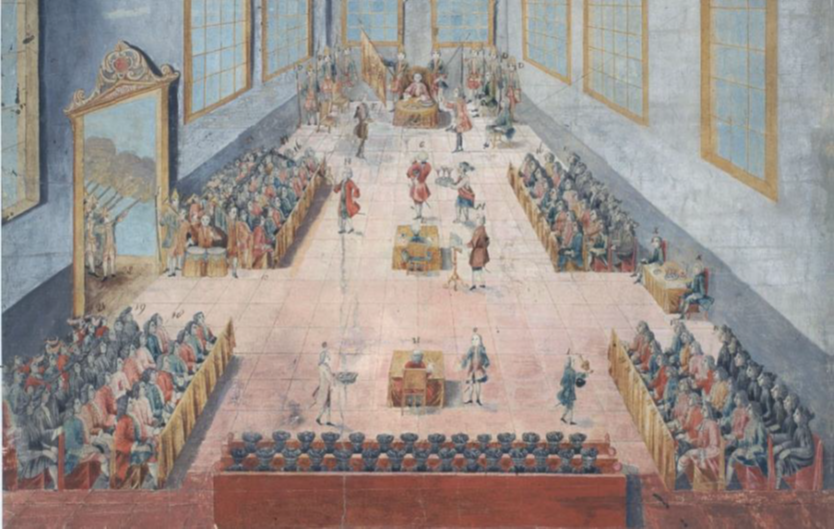On-Site Lecture "Treaty-making in Southeast Asia as a Cross-cultural Practice"

Pictured: Signing of the treaties between the VOC and the princes of Timor and surrounding islands, Kupang 10 May 1756. Anonymous artist. Wereldmuseum, Amsterdam.
Presenters: Stefan Amirell, Birgit Tremml-Werner, Eleonora Poggio, Ariel Lopez, Maarten Manse, and Hans Hägerdal.
Location: Herta Mohr building (Witte Singel 27A Leiden) Room 0.10
Treaty-making was at the heart of European empire-building in Southeast Asia. While historians have since long valued it as such, treaty-making has often been understood as a predominantly European practice, with European trading companies – in particular the Dutch East India Company (VOC) – championing the use of treaties as a tool for gaining influence and claim-making. Treaty-making, however, developed as a diplomatic activity in the region and included both European and Southeast Asian actors who used treaties to structure political relationships and secure their interests.
In this lecture, we present some of the newest findings from the research program Historical Treaties of Southeast Asia, as recently published in a special issue of the journal Diplomatica (6:2, September 2024). Focusing on four treaty-making processes – the 1756 contracts between the VOC and the indigenous states of Timor, the 1836/37 treaty between the Spanish Crown and the Sultanate of Sulu, the 1743 treaty between the VOC and the Javanese Mataram Empire, and the 1847 Treaty between Brunei and the United Kingdom – we show how practices and strategies of translation as well the entire process of planning, negotiating, and ratifying the treaties through ceremonies and symbolism all influenced how the treaties were understood and interpreted, often very differently by the Asian and European actors involved.
All Dates
- 2024-11-14 13:15 - 15:00






